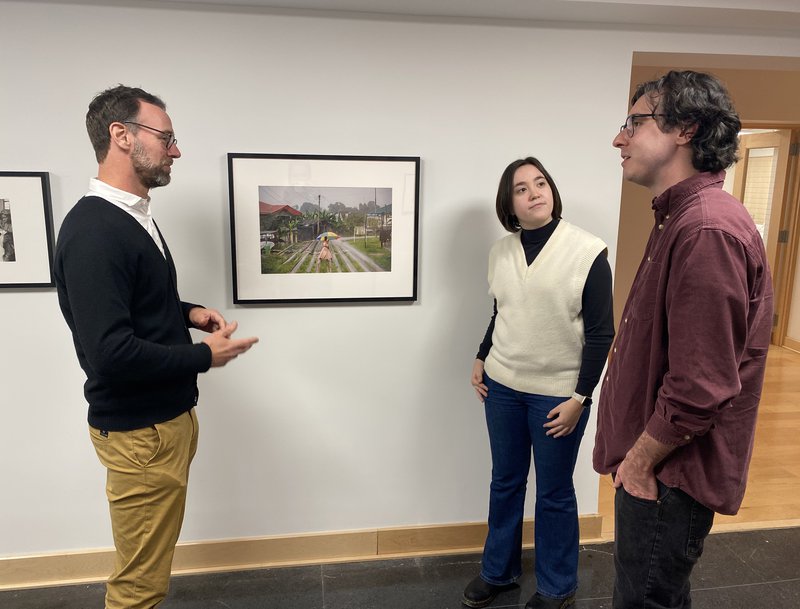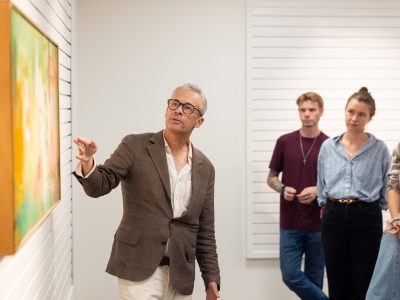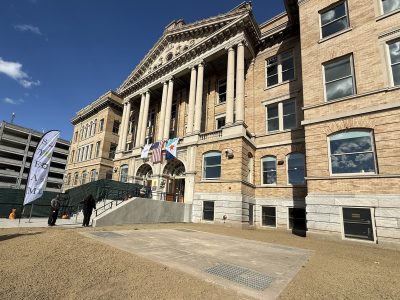Other Ways of Seeing: Understanding Ecology and Climate Through Art
Helping students of all ages understand and respond to the implications of the climate crisis, and to think ecologically, is complicated and requires an innovative and collaborative approach. That’s why Mike Goode, professor of English in the College of Arts and Sciences (A&S), wanted to focus on ways the humanities could help people learn about ecology and climate when he became the William P. Tolley Distinguished Teaching Professor in the Humanities–a role designed to support enhancement of the pedagogical experience and to boost effectiveness in the classroom.
Goode teamed up with staff at the SU Art Museum and students across campus to explore the ways in which objects and artworks in the museum’s collection could be utilized as teaching resources. Over the past year, the transdisciplinary team has conducted countless hours of research to develop a collection of electronic museums (e-museums) called the Art, Ecology and Climate Project. The following section of questions and answers provide details and information about the curators, the extensive research that went into this effort and how teachers can utilize these resources.



